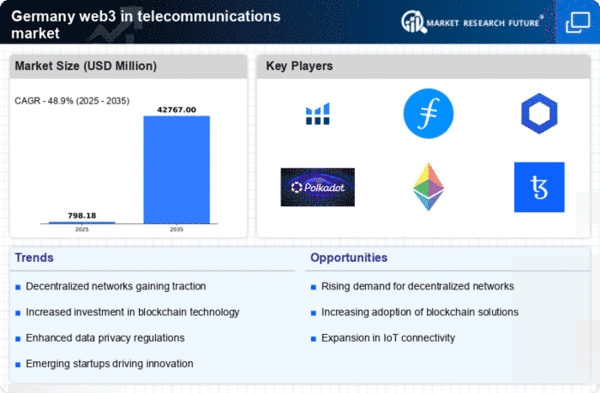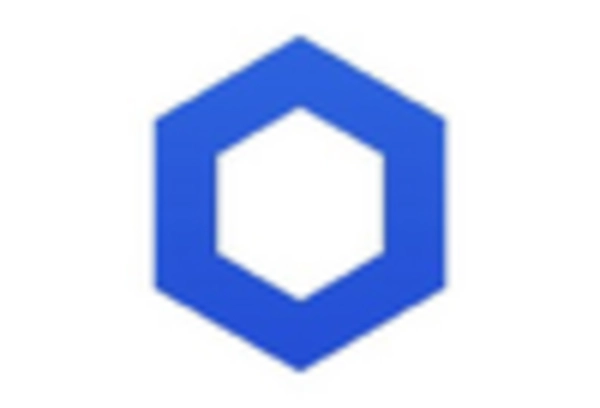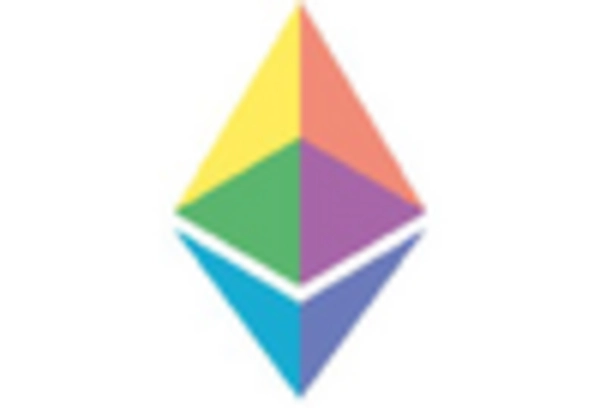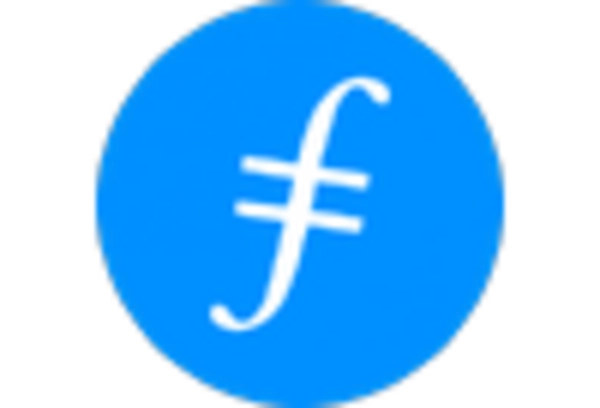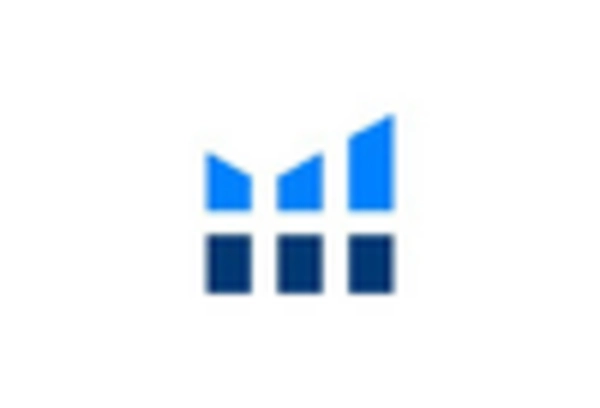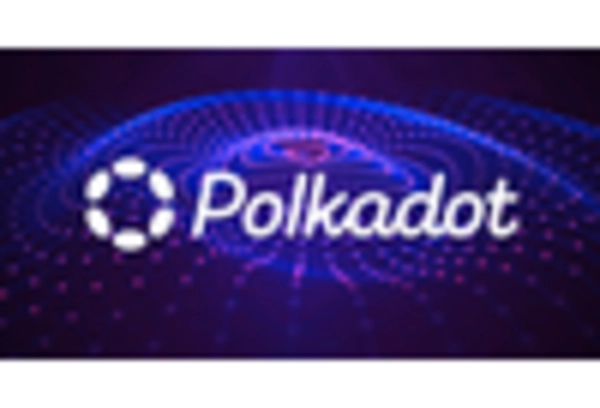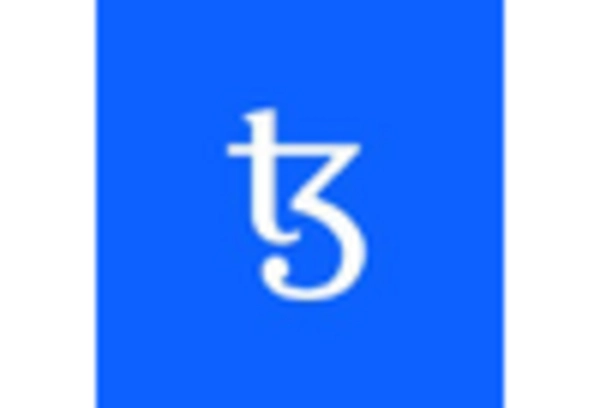Emergence of Innovative Business Models
The web3 in-telecommunications market is witnessing the emergence of innovative business models that leverage blockchain technology. These models often focus on enhancing user experience and operational efficiency. For example, companies are exploring subscription-based services that utilize smart contracts to automate billing and service delivery. This approach not only reduces operational costs but also increases transparency for consumers. Furthermore, the integration of decentralized finance (DeFi) within telecommunications services is gaining traction, allowing users to engage in peer-to-peer transactions without intermediaries. As these innovative models gain acceptance, they are likely to reshape the competitive landscape, compelling traditional telecommunications providers to adapt or risk obsolescence in the web3 in-telecommunications market.
Increased Demand for Decentralized Services
The web3 in-telecommunications market in Germany is experiencing a notable surge in demand for decentralized services. This shift is largely driven by consumers' growing awareness of data privacy and security concerns. As individuals seek more control over their personal information, decentralized solutions that leverage blockchain technology are becoming increasingly appealing. According to recent studies, approximately 65% of German consumers express a preference for services that prioritize data ownership. This trend is likely to propel the adoption of decentralized applications (dApps) within the telecommunications sector, fostering innovation and competition among service providers. Consequently, companies that embrace these technologies may gain a competitive edge, positioning themselves favorably in the evolving landscape of the web3 in-telecommunications market.
Consumer Education and Awareness Initiatives
Consumer education and awareness initiatives are playing a pivotal role in shaping the web3 in-telecommunications market in Germany. As the technology underlying web3 becomes more complex, there is a pressing need for consumers to understand its benefits and implications. Telecommunications companies are increasingly investing in educational campaigns to demystify blockchain technology and its applications. These initiatives aim to inform consumers about the advantages of decentralized services, such as enhanced security and privacy. Research indicates that informed consumers are more likely to adopt web3 solutions, potentially increasing market penetration by 20% over the next few years. As awareness grows, the web3 in-telecommunications market is expected to expand, driven by a more knowledgeable consumer base.
Regulatory Support for Blockchain Initiatives
In Germany, the regulatory environment is evolving to support blockchain initiatives, which is a crucial driver for the web3 in-telecommunications market. The German government has recognized the potential of blockchain technology to enhance transparency and efficiency in various sectors, including telecommunications. Recent legislative measures aim to create a favorable framework for blockchain adoption, which could lead to increased investment in decentralized telecommunications solutions. For instance, the Federal Ministry of Finance has proposed guidelines that encourage innovation while ensuring consumer protection. This regulatory support is expected to stimulate growth in the web3 in-telecommunications market, as companies align their strategies with government initiatives, potentially leading to a market expansion of up to 30% by 2027.
Growing Investment in Telecommunications Infrastructure
Investment in telecommunications infrastructure is a critical driver for the web3 in-telecommunications market in Germany. As the demand for high-speed internet and reliable connectivity continues to rise, telecommunications companies are increasingly allocating resources to upgrade their networks. This investment is essential for supporting the deployment of decentralized applications and services that rely on robust infrastructure. According to industry reports, investments in telecommunications infrastructure in Germany are projected to reach €10 billion by 2026. This influx of capital is expected to facilitate the integration of web3 technologies, enabling service providers to offer enhanced solutions that meet the evolving needs of consumers in the web3 in-telecommunications market.


